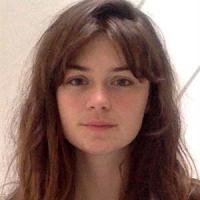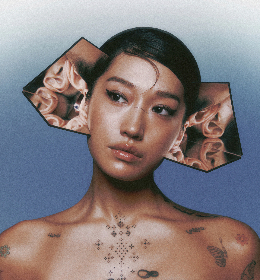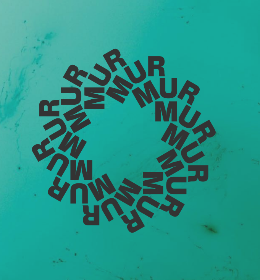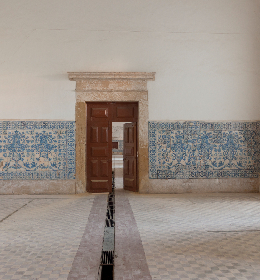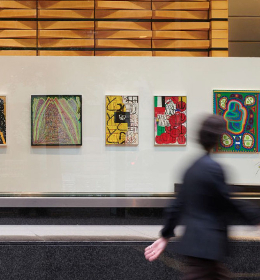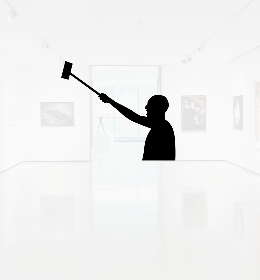Riding a red horse solemnly down empty streets, wearing a large muzzle, in Palomo, (2012), lying naked with entrails laid upon her stomach, crows violently descending on her in Quando Todos Calam, (2009) or riding a gold chariot towed by pigs in gold-plated armour in Vazio de Nós, (2013) Reale feels the weight of responsibility as an artist. “I don’t think art is capable of changing the world,” says Reale, “but I can try, we must try.” Her performances demand acknowledgement with their bold otherworldliness. “I want my art to give people an opportunity to think about the problems of our current world,” she says.
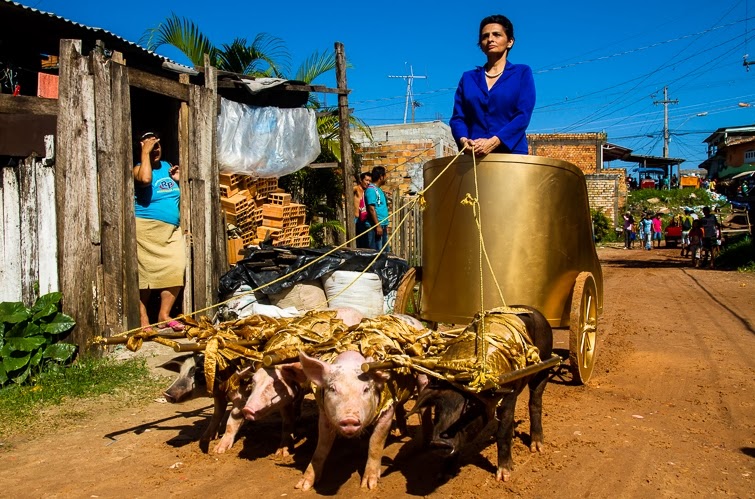
Bernale Reale, Vazio de Nós (2013)
Reale is a trained criminology expert, and confronting the realities of the violence that takes place every day in Northeast Brazil is part of her day-to-day life. Reale’s native Belem is a gateway for drug distribution and consequently violent crime rates are high, despite its relative prosperity. According to a report by the Mexico City based Center for Public Security And Criminal Justice, there were 1,101 homicides in the city in 2015. That’s a 45.83 rate per 100,000 habitants.
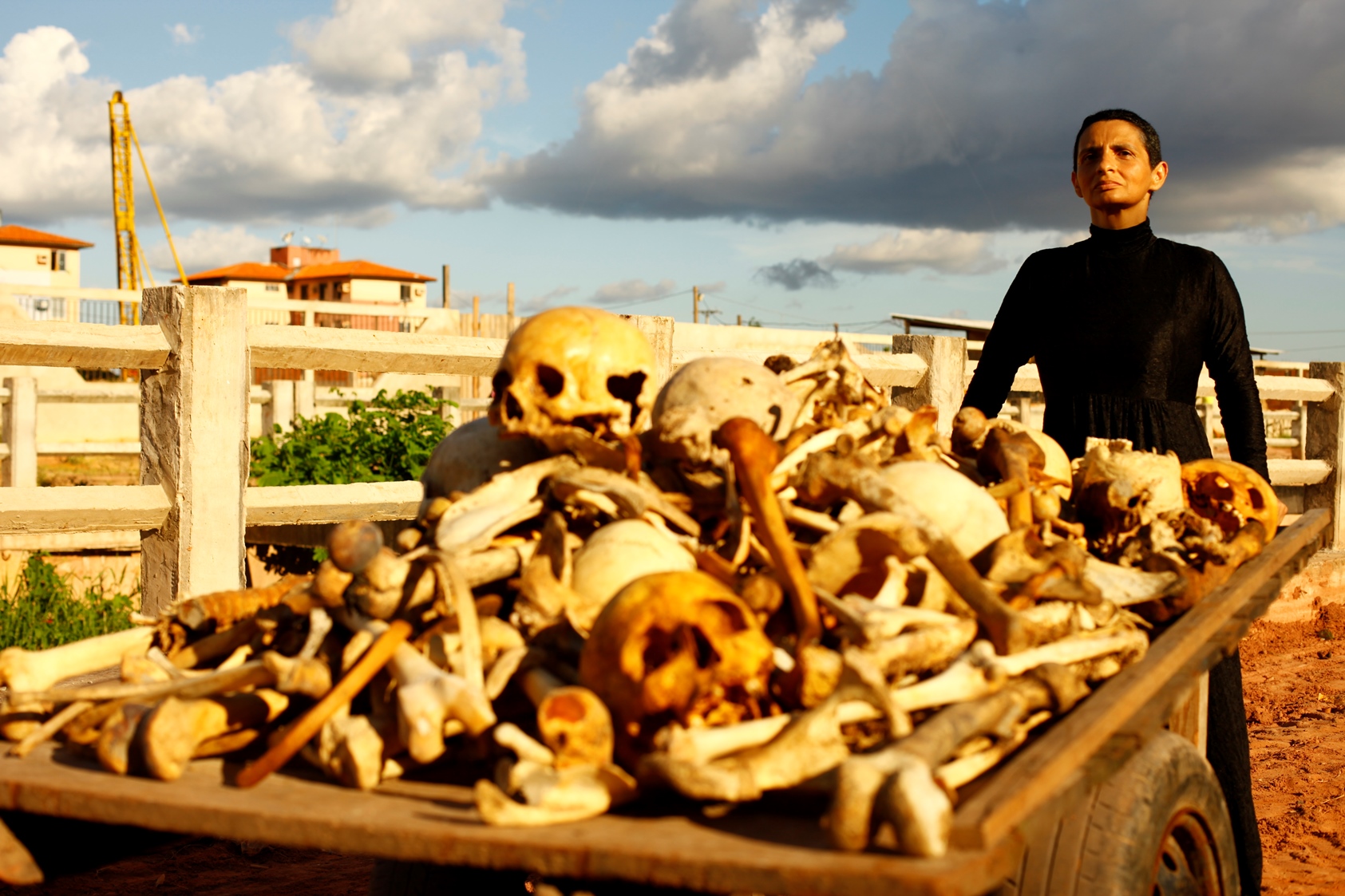
Berna Reale, Ordinário (2013)
“The biggest problem in Brazil is corruption,” maintains Reale, “it’s a mindset that creates misery.” Her absurd and striking performances however elevate this physical and ecological violence out of desensitized banality and place these problems on a platform, through her work, that cannot be easily ignored. “I perform because I prefer to be present in the city, I like to get into people’s daily lives. I am always present, I know what I want to show,” she says. “Art can do very little as it is so attached to an elite, but as artists we can make noise, raise questions, and try to provoke reflection.”
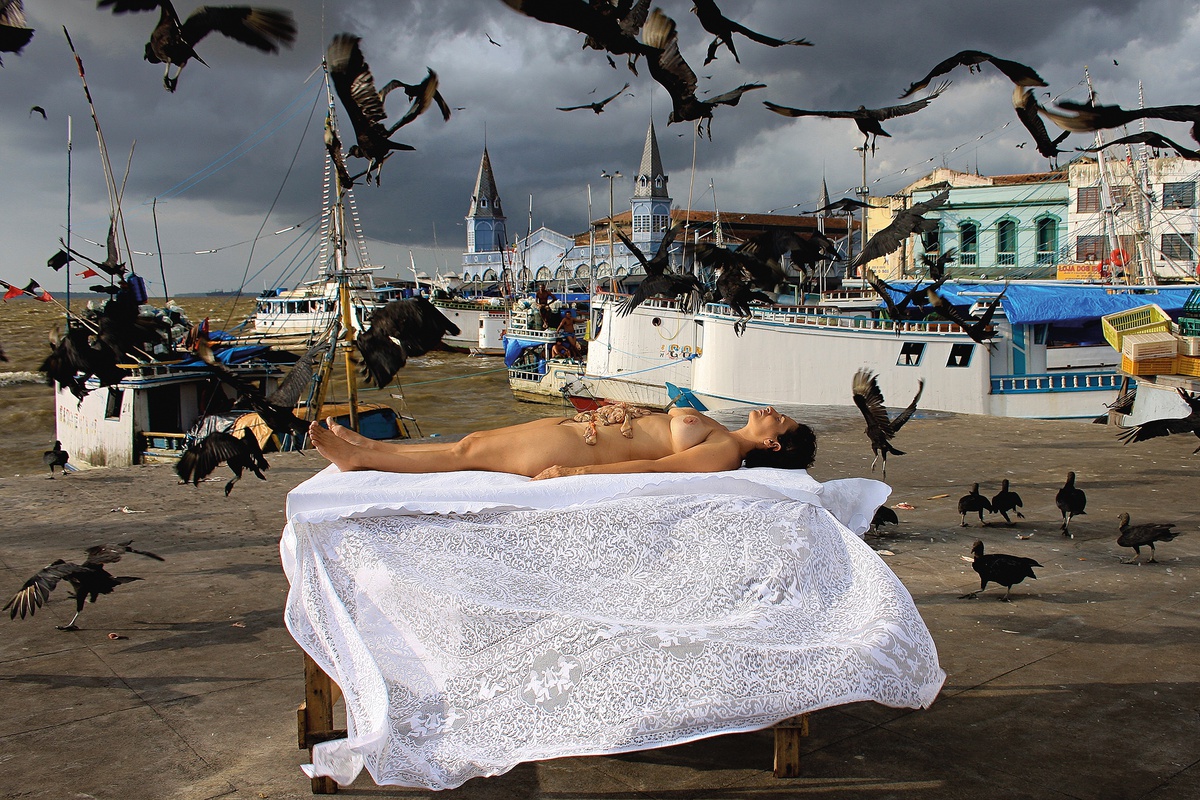
Berna Reale, Quando todos calam (2009)
“I don't think all art should necessarily be political, but I do think that art should explore problems regarding social matters,” Reale’s double life in criminology and the passion with which she speaks and employs her own body in her art, belies her dedication to making the world a better place. “People inspire me,” she says. “All the people.” From war, to famine, to displacement, corruption and ecology, for Reale, “the biggest problem in this world is difference. Difference regarding access to the same opportunities is the root of all human suffering.”
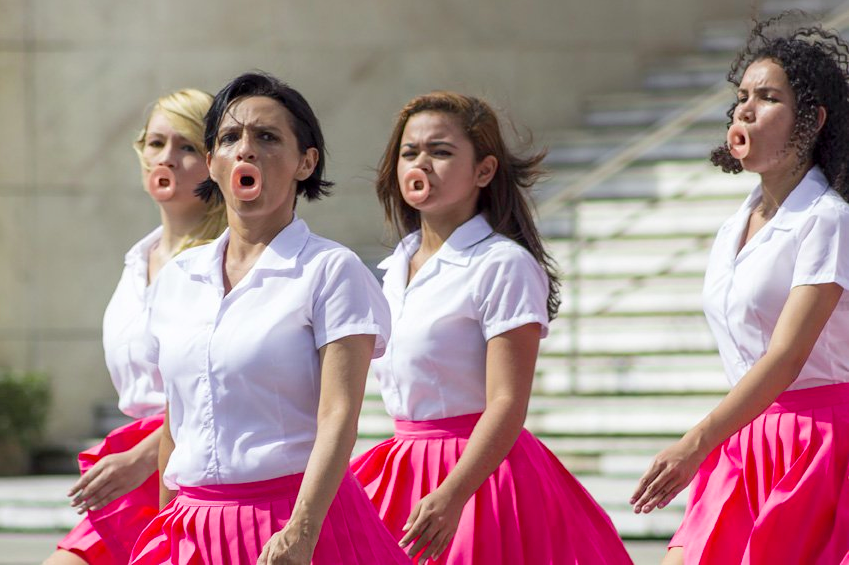
Berna Reale, Rosa Púrpura (2014) Video
This article is part of the series: The politics of change: art in the political sphere. All related articles can be found here.



